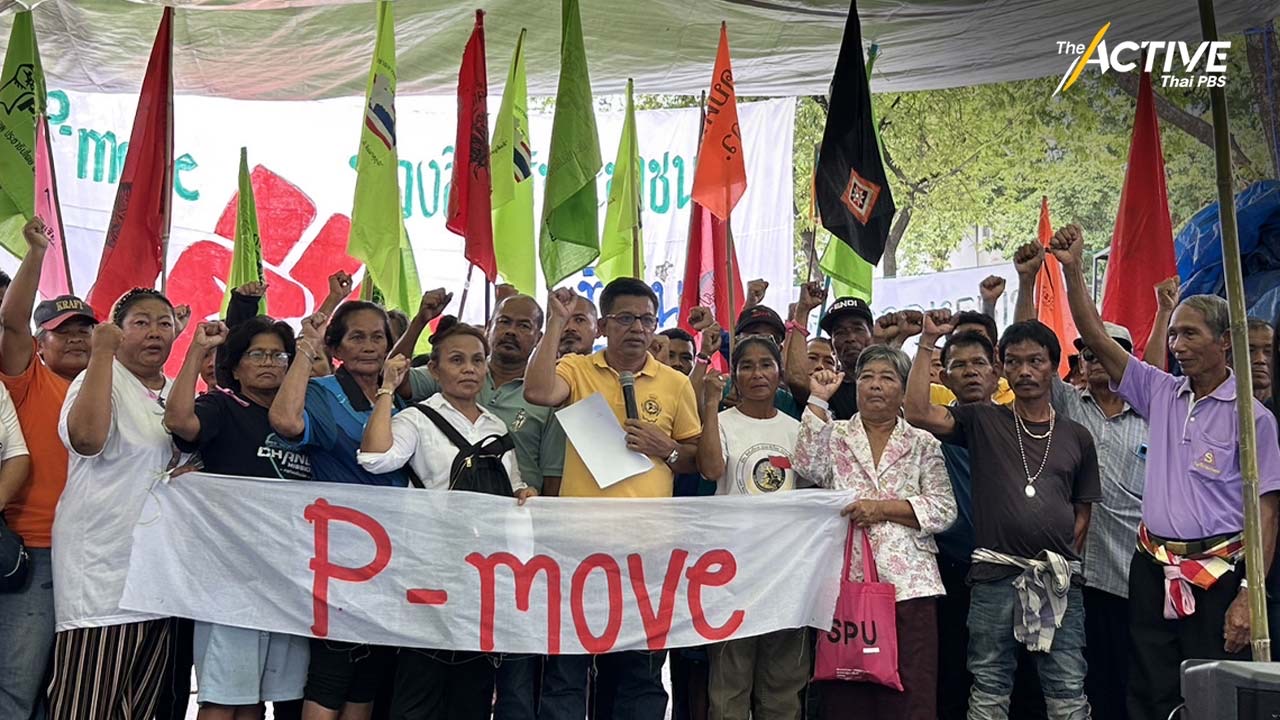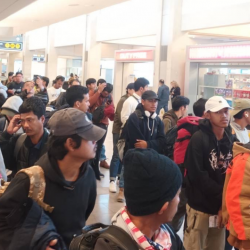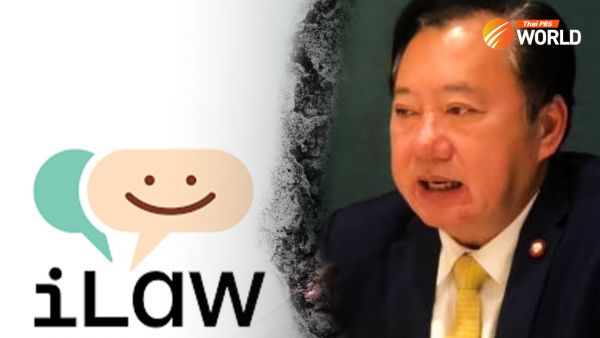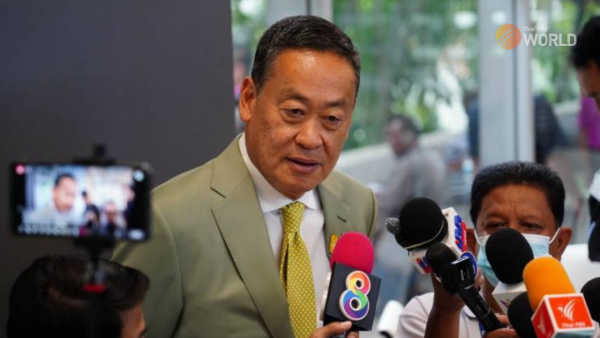Inside the protest group mounting first big challenge to Thailand’s new government

Hundreds of protesters have been demonstrating in front of Government House since October 3, calling on the new administration to address 10 demands to improve the lives of marginalized groups in Thailand.
“If our lives were not so difficult, we would not be here,” said Thavorn Thanasing, 70. “We are prey to hordes of mosquitoes, and when it rains heavily at night, we are not able to sleep. Our makeshift canvas roof leaks in several places.”
Along with the 500 or so other protesters, Thavorn is a member the People’s Movement for a Just Society (P-move), which represents landless farmers, stateless persons, slum dwellers, and other struggling communities who lack any voice in Thailand.
The elderly woman says the government seized her family’s 29-rai plot of land in Yasothon’s Loeng Nok Tha district in 1998.
“My grandpa had lived and worked on the plot since 1857. How could it become public land all of a sudden?” she asked.
Thavorn has petitioned various authorities for help ever since the plot was confiscated, but her pleas have fallen on deaf ears. So, when she heard that P-move was staging a demonstration at Government House to grab the attention of the powers-that-be, she didn’t hesitate to join up.
Fellow protester Suriya Namkhot tells a similar story.
The 61-year-old says he joined the demonstration as a representative of 25 families in his home province of Surin who – like Thavorn – lost their land plots.
“We have lodged complaints since 1992. But instead of receiving help, some of us have been prosecuted,” he said.
Suriya is a veteran of several other protests but hopes rallying under the P-move banner will finally help him achieve justice for his group.
P-move’s 10 demands
Established 12 years ago, P-move draws together networks of poor and marginalized communities across the country under a single umbrella. Its members have been adversely affected by government policies on land and other issues.
“We listed the 10 demands to address the grievances of people,” said Chamnong Nupan, P-move’s chairman.
The first demand calls for a new constitution on grounds that certain articles in the current charter, which was written under the junta, erode the rights of marginalized communities. The public must also be allowed to participate in every step of the new constitution’s drafting, P-move adds.
The second demand calls for decentralization of power, for example by allowing the public to elect their provincial governors.
The third demand presses for judicial reform as well as an amnesty for people who have been prosecuted as a result of “unjust” government policies.
The fourth demand seeks fairer land ownership and distribution policies.
The fifth calls on authorities to stop reclaiming land from forest dwellers, citing the damage it does to communities that have long co-existed with forestland.
Other demands include a call for better disaster prevention, emergency response and related remedies; the establishment of a committee to urgently address problems facing stateless people; improved state-welfare policy; housing for the homeless and poor; and the protection of ethnic and human rights.
The last demand calls on Parliament to urgently pass the Protection and Promotion of Ethnic and Indigenous Communities Bill.
First big protest of Srettha administration
Chamnong said he had not led protesters to Government House to test the new government, which was formed only last month. Neither did he intend to challenge the new prime minister, Srettha Thavisin.
“But we have to follow up on our demands. We presented our 10 demands for political parties to consider ahead of the election. But we found out that none of our demands was raised at the special Cabinet meeting on September 6 [to prepare the government’s policy statement to Parliament]. The prime minister’s policy statement also failed to address our demands,” Chamnong said.
However, just a few days after the protesters erected their tents in front of Government House, Deputy Prime Minister Phumtham Wechayachai met with their leaders. Their demands were then addressed at the Cabinet meeting on October 10. The meeting saw Cabinet members acknowledge guidelines on how to solve the protesters’ problems.
Based on the guidelines, a committee was set up with Phumtham as chairman and Thammanat Prompow as deputy chairman. The 21-member committee will also feature representatives of P-move and relevant authorities. It will have the authority to formulate policies and measures, set budget, and introduce solutions to problems presented by P-move. It will also work with various agencies to monitor implementation of the solutions.
Fast response but will solutions be delivered?
“This is a good response. The government has responded quickly,” Chamnong remarked of the committee.
He explained that the committee would give birth to 10 subcommittees, each dedicated to a separate demand put forward by P-move. These subcommittees will be chaired by ministers and include P-Move as members.
Thammanat said the Cabinet would also discuss progress of the response to P-move’s demands during its upcoming Cabinet meeting.
“For us, it’s good to have public-private collaboration on this front,” he said.
Chamnong said his group would prioritize an amnesty for people prosecuted under the forest reclamation policy. With 46,000 cases pending against these forest dwellers, the problem is huge and pressing.
“Also on our priority list are community land deeds and a few other things,” he said.
P-move says it intends to stay put in front of Government House until the Cabinet addresses all 10 demands and approves plans to solve the problems.
“We won’t disperse just because the committee was established. We are ready to remain here for the long term so that our members get a satisfactory response,” Chamnong said.
Second protest group arrives
P-move has been joined outside Government House by protesters under the Assembly of the Poor. And the latter group has also received a relatively swift response from the new administration, with a minister agreeing to inspect a dam and officials vowing to check controversial sites themselves soon.
“If the government can solve one case successfully and tangibly, we will be satisfied because it will mark a good start of the collaboration to solve problems together,” said Baramee Chaiyarat, of the Assembly of the Poor.
The Assembly of the Poor is also preparing for a months-long protest if that’s what it takes to get the government to pay serious attention to the plight of its members.
By Thai PBS World’s Political Desk






